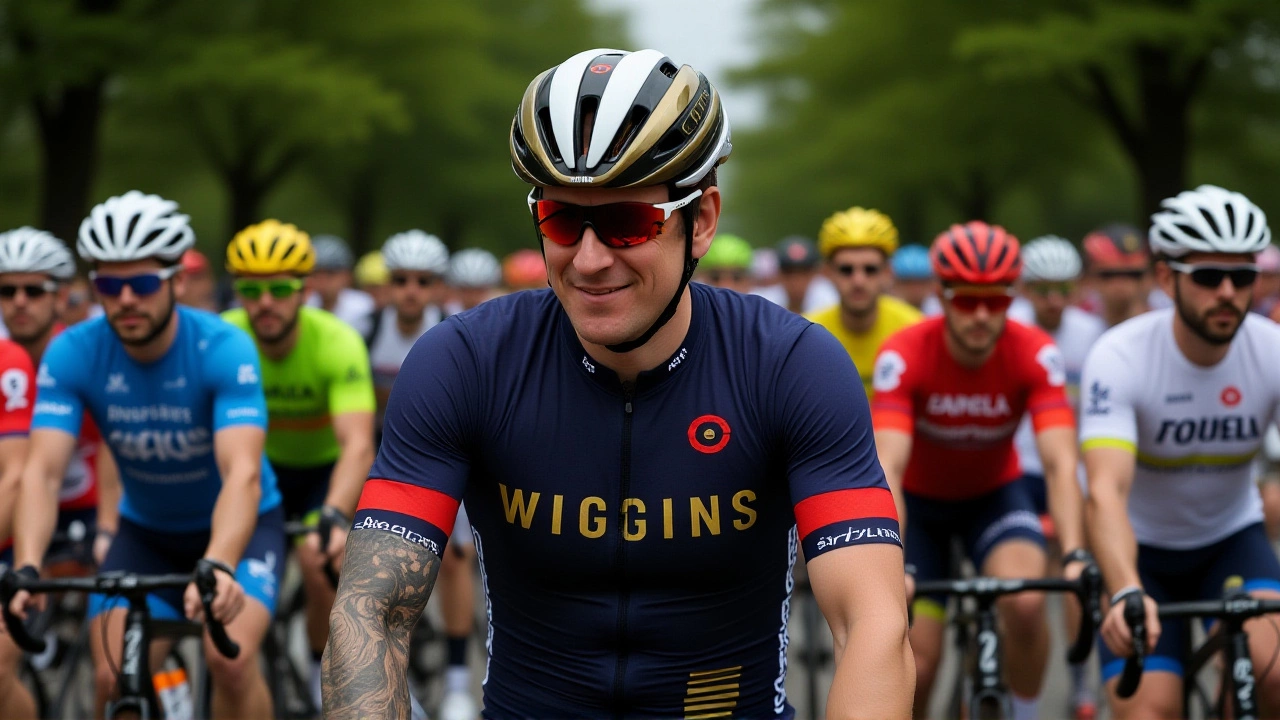When Bradley Wiggins, former professional cyclist sat down with The Times to talk about his upcoming memoir, he didn’t shy away from the darkest chapter of his life: a period that saw him crashing on a bench at Clapham Common and sleeping in a Middlesbrough crack house. The revelations, coming just weeks before the launch of The Chain book launchLondon, have sent shockwaves through the cycling world.
Background and Early Triumphs
Born on 28 April 1980, Wiggins rose through the ranks of British Cycling, racking up five Olympic gold medals between Athens (2004) and Rio (2016). In 2012 he became the first Briton to seize the Tour de France, a feat that earned him a knighthood the following year. Those victories turned him into a national hero, but behind the medals lay a childhood scar: between ages 13 and 16 he endured sexual abuse at the hands of his coach, Stan Knight. The trauma, which Wiggins only disclosed publicly in 2023, would later intersect with his struggles after retirement.
Descent into Addiction
Wiggins retired in late 2016, and by 2018 he was experimenting with cocaine. What began as occasional use spiraled into a full‑blown habit. He told the Times, “I was snorting cocaine off my Olympic gold medal. It was scary.” At the peak of his binge, he’d spend up to 120 grams of the drug during a single hotel stay, draining his accounts and forcing him to file for bankruptcy in 2023. The addiction drove him to the streets: he lived out of his car, slept on benches at Clapham Common, and spent nights in a crack house in Middlesbrough, a town he described as “a place I never imagined I’d be.”
Abuse, Doping Allegations, and Team Sky
While battling his own demons, Wiggins also confronted the lingering cloud of doping claims linked to Team Sky. He accused the outfit of “chucking me under a bus,” referring to alleged corticosteroid therapeutic use exemptions (TUEs) and a mysterious “Jiffy bag” delivered during the 2011 Critérium du Dauphiné. Though he insists he never knowingly broke any rules, he hinted that “it’ll come out,” suggesting internal cover‑ups that still haunt his legacy.
Path to Recovery
The turning point arrived thanks to an unlikely ally: seven‑time Tour winner Lance Armstrong. Armstrong, who had his own redemption arc, reportedly helped Wiggins find a rehab program and stay sober. Today, Wiggins marks one year of clean living, monitors his health with an Oura ring, and jokes, “I thought about becoming a therapist… I’ll probably need more therapy first.” He’s also rebuilding family ties, co‑parenting his five‑year‑old daughter Ava and reconnecting with his older children, Ben—now a rider for Team Visma‑Lease a Bike—and Bella.
Future and Legacy
With the book The Chain set to hit shelves in March, Wiggins hopes his story will spark a broader conversation about mental health, addiction, and the pressures elite athletes face. He says he wants to use his platform to advocate for better support systems within British sport, a cause he believes is overdue. Whether the public will forgive the man who once smashed his Sports Personality of the Year trophy remains to be seen, but his candor has already reshaped the narrative around his career.
Frequently Asked Questions
How did Bradley Wiggins' addiction affect his family?
The binge tore his marriage apart and left his children, especially his eldest son Ben, uncertain about his future. In his memoir, Wiggins describes long evenings in his car while his kids slept on friends’ sofas, and he credits a year of sobriety for slowly mending those bonds.
What evidence exists around the alleged ‘Jiffy bag’ scandal?
The Jiffy bag reference comes from a 2011 internal memo that mentioned a sealed package delivered to Team Sky before the Critérium du Dauphiné. No definitive proof of banned substances has been made public, and Wiggins maintains he never knowingly took anything illegal.
Why is the book titled ‘The Chain’?
Wiggins says the title reflects both the chain that drives a bike and the unbreakable link between his triumphs and his struggles. The memoir weaves his Olympic victories, the abuse he suffered, and the drug crisis into one continuous narrative.
What steps is Wiggins taking to prevent relapse?
He uses an Oura ring to track sleep and heart‑rate variability, attends weekly counseling, and stays connected with a support circle that includes former rivals like Lance Armstrong. He also avoids high‑stress situations by limiting public appearances when possible.
How might Wiggins' revelations impact British Cycling?
His candid admission of abuse and addiction is likely to pressure governing bodies into stricter safeguarding policies and mental‑health provisions for athletes, a shift many insiders have been urging for years.
